
-
Find the right food for your petTake this quiz to see which food may be the best for your furry friend.Find the right food for your petTake this quiz to see which food may be the best for your furry friend.Featured products
 Perfect Digestion Small & Mini Adult Dog Food
Perfect Digestion Small & Mini Adult Dog FoodHill's Science Plan Perfect Digestion Small & Mini Breed Adult Dog Food with Chicken & Brown Rice supports ultimate digestive well-being & a healthy microbiome.
Shop Now Small & Mini Mature Adult 7+ Dog Food
Small & Mini Mature Adult 7+ Dog FoodHill's Science Plan Small & Mini Breed Mature Adult Dog Food with Chicken is a complete pet food, specially formulated with ActivBiome+ Multi-Benefit Technology.
Tailored nutrition to support graceful ageing in small dogs. Specially made with a synergistic blend of nutrients for energy & vigor.Shop Now Perfect Digestion Large Breed Puppy Food
Perfect Digestion Large Breed Puppy FoodPrecisely balanced nutrition with Hill's ActivBiome+ prebiotic blend actively contributes to supporting digestive health and overall well-being to help your pet feel their best
Shop NowFeatured products Hairball & Perfect Coat Adult Cat Food
Hairball & Perfect Coat Adult Cat FoodHill's Science Plan HAIRBALL & PERFECT COAT Adult cat food with Chicken is specially formulated to effectively help avoid hairball formation in adult cats while promoting a beautiful coat. Thanks to its mix of essential Omega-6 fatty acids, this food benefits the cat's skin and fur keeping them healthy and shiny. Our Advanced Fibre Technology helps reduce hairballs by naturally promoting their passage through the gut. This food is formulated with high-quality protein for a perfectly balanced, great-tasting recipe.
Shop Now Hypoallergenic Dry Cat Food
Hypoallergenic Dry Cat FoodHILL'S SCIENCE PLAN Hypoallergenic Adult cat food with egg & insect protein is a complete pet food for adult cat 1–6 years old. It's formulated for cats with delicate skin and stomach, with limited high quality novel protein sources & no grain.
Shop Now Kitten Food
Kitten FoodTender chicken chunks in gravy for kittens, with omega-3s for healthy eye & brain development and high-quality protein to support muscle growth. With balanced minerals to promote strong bones & teeth.
Shop Now -
Dog
- Dog Tips & Articles
-
Health Category
- Weight
- Food & Environmental Sensitivities
- Urinary
- Digestive
- Joint
- Kidney
-
Life Stage
- Puppy Nutrition
- Adult Nutrition
- Senior Nutrition
Cat- Cat Tips & Articles
-
Health Category
- Weight
- Skin & Food Sensitivities
- Urinary
- Digestive
- Kidney
-
Life Stage
- Kitten Nutrition
- Adult Nutrition
Featured articles Understanding Your Pet's Microbiome
Understanding Your Pet's MicrobiomeLearn what a pet's microbiome is, how it contributes to your pet's gut & overall health, and why nutrition is important in maintaining healthy microbiomes.
Read More The Right Diet For Your Pet
The Right Diet For Your PetLearn what to look for in healthy pet food & nutrition, including ingredients, quality of the manufacturer, your pet's age, and any special needs they have
Read More Pet Food Storage Tips
Pet Food Storage TipsWhere you store your cat and dog food can make a big difference in the quality and freshness once it is opened. Here are some common questions and recommendations for optimal storage for all of Hill’s dry and canned cat and dog food.
Read More -


Do you have a Velcro cat? If your cat sticks to you like Velcro, you've probably got a clingy cat on your hands. Whether or not this is a good thing depends on a few factors, including your perspective and the reasons your cat is clingy. To some cat parents, any cat that exhibits more dog-like behaviours — such as following you around the house, running to greet you when you come home or being extra affectionate — is considered clingy when compared to cats who are more independent and aloof. But some cats can be clingy to an unhealthy degree. How can you tell the difference? Keep reading to find out.
Signs of Clinginess in Cats
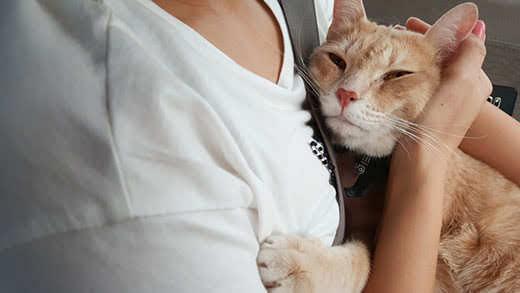
- Following you everywhere, including to the bathroom.
- Wanting to constantly be on you when you're sitting or lying down.
- Meowing constantly to get your attention.
- Demanding affection when you're trying to focus on something other than them.
- Refusing to eat when you're not there.
- Acting shy and sticking close to you when visitors come over.
- Sulking or hiding when you're getting ready to leave, or rubbing against your legs in an attempt to keep you there.
- Getting overly excited when you return home.
- Eliminating outside the litter box and other destructive behaviour.


Tasty Tips
Why Are Some Cats Clingy?
Some cats are simply clingy by nature, with some purebred cat breeds like the Siamese and the Abyssinian known for their clingy personalities. But in some cases, clinginess can be a sign that something is up with your kitty; therefore, it's important to pay attention to what might be causing this behaviour. One or more of the following causes might be behind your kitty's clinginess.
Boredom
Your cat might be clingy simply because they aren't getting enough mental and physical stimulation, says Petbucket. Taking breaks to play with your cat and providing interactive toys to help keep them active and entertained throughout the day can help in these cases.
Premature Weaning and Separation
Kittens can develop separation anxiety from being weaned too early or from being taken from their mothers and littermates before they're ready, says Catspro.com. Kittens typically move from mother's milk to solid food around eight weeks of age. But adopting them as soon as they're weaned can prevent them from learning important social skills from their mother and siblings that can set them up to be more secure and independent as adults.
Insecurity
Cats are routine-oriented, and any change in their routines or environment can make them feel insecure and send them looking to you for reassurance. Big changes like moving to a new home, the addition or loss of another pet or family member, or kids going back to school after a long vacation can be enough to make your kitty need the reassurance of constant contact. Newly rescued cats may also need a lot of reassurance that they're wanted and welcome in their new home.
Wanting to Provide Comfort
Cats are highly sensitive to human moods and emotions. It could be that your kitty senses that you're going through a difficult time and wants to be there to comfort you and make sure you're OK.
Pregnant Pet Parent
Some cats have an uncanny ability to sense when a woman is pregnant and become extremely affectionate throughout the pregnancy, says Catspro.com. Exactly how a cat can tell there's a baby on the way is a mystery, but if you're expecting, don't be surprised if your kitty wants to snuggle up to your baby bump.
Lack of Enforced Boundaries
Some clingy kitties are simply spoiled. If you pamper your kitty by giving in to all of their demands, you'll reinforce their clingy, demanding behaviour by teaching them they can easily manipulate you to get what they want, says All About Cats.
Underlying Health Issues
Dementia in elderly cats can also indicate other health problems. A neurological condition known as cerebellar hypoplasia (CH) tends to make cats exceptionally cuddly and attention-seeking, and it's usually accompanied by balance issues and lack of coordination.
While it can be nice to have a highly affectionate pet, some cat parents find that overly clingy and demanding behaviour is disruptive. If this is the case, you'll need to take steps to help your cat be less clingy and more independent. And if your formerly aloof cat has suddenly begun displaying signs of clinginess, pay attention to other signs that could indicate health problems. In general, any time your cat has a sudden change in behaviour, it's a good idea to consult your veterinarian.
How to Help an Overly Clingy Cat
If your kitty's clinginess becomes a cause for concern, follow these steps to help them become more independent.
Identify the cause. While it might be obvious, you may need to do some detective work. Keep in mind that cats are so sensitive to change that something as seemingly minor as getting a new sofa or rearranging the furniture can cause your kitty distress.
Consult your vet. If you suspect health issues might be involved, schedule a checkup with your vet. They can also help determine whether separation anxiety resulting from premature weaning is the cause and advise you on how to treat it.
Set firm boundaries and enforce them. Close the bathroom door behind you, don't give in to every demand for attention and make your lap available on your terms, not your kitty's.
Schedule playtime. Provide toys to relieve boredom when you're busy or away from home. Place a perch next to a busy window for bird and people watching. If this isn't possible, search online for videos for cats, which can help keep your cat entertained while you get other things done.
Consider adopting another cat. While some cats thrive on being only pets, clingy cats can benefit from having another kitty around to keep them company. This is especially true for cats who become clingy after the loss of another household pet.
Adopting a Potentially Clingy Cat
If you're thinking about adopting a cat, take your time choosing the right one. Carefully research any breeds you're considering so you'll know what to expect. Consider whether you have the time and energy for a highly affectionate, potentially clingy cat. If adopting from a shelter, pay multiple visits to the cat you're considering to see how they behave around you as they become more familiar with you. Cats can take a while to let their true personalities shine, so the more you can get to know a cat before bringing them home, the better. And if adopting a kitten, urge the shelter staff to keep the litter with their mother until three months of age to give them time to be fully weaned and socialised by their original cat family.
It's nice when your cat is affectionate and wants to be with you, but too much of a good thing can be a problem. Taking steps to help your cat be less clingy can help both of you be happier, and may even help your kitty be healthier in the process.
If your cat is suffering with stress, ask your vet about how Hill's Prescription Diet c/d Multicare Stress or Hill's Prescription Diet c/d Multicare Stress + Metabolic cat food can help.


Jean Marie Bauhaus is a pet parent, pet blogger, and novelist from Tulsa, Oklahoma, where she usually writes under the supervision of a lapful of fur babies.
Related products

HILL'S SCIENCE PLAN Hypoallergenic Adult cat food with egg & insect protein is a complete pet food for adult cat 1–6 years old. It's formulated for cats with delicate skin and stomach, with limited high quality novel protein sources & no grain.

Hill's Science Plan HAIRBALL & PERFECT COAT Adult cat food with Chicken is specially formulated to effectively help avoid hairball formation in adult cats while promoting a beautiful coat. Thanks to its mix of essential Omega-6 fatty acids, this food benefits the cat's skin and fur keeping them healthy and shiny. Our Advanced Fibre Technology helps reduce hairballs by naturally promoting their passage through the gut. This food is formulated with high-quality protein for a perfectly balanced, great-tasting recipe.

Hill's Science Plan Kitten Wet Cat Food Premium Chunks in Sauce with Chicken is a complete pet food for kittens and for pregnant or nursing cats

Hill's Science Plan Adult Cat Food with Chicken is a complete pet food, specially formulated with ActivBiome+ Multi-Benefit Technology.
This food is specially formulated to fuel the energy needs of cats during the prime of their life.
Related articles
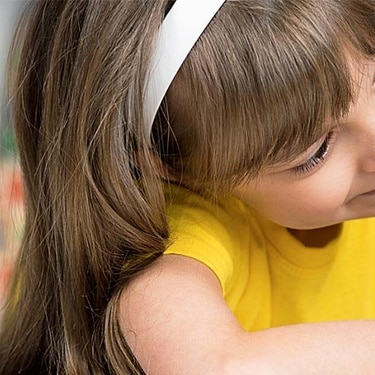
When learning how to train your cat, you'll start with very basic first steps that both reward good behavior and discourage the bad.
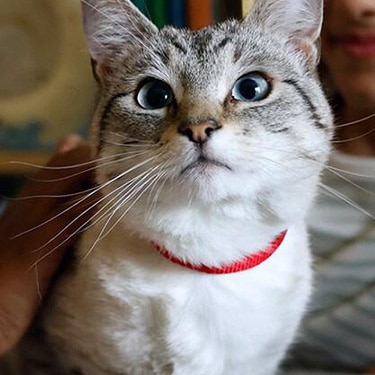
Discover what you can do to spot and support a sensitive cat stomach. See what routines and food you can implement to help your cat be happy and healthy.
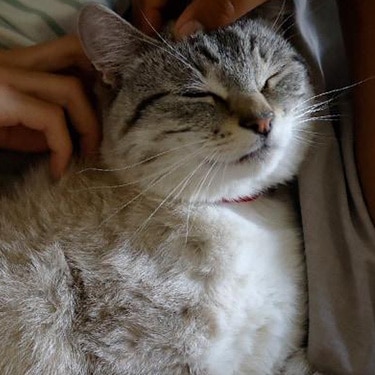
Find out about how you can support your cat's digestion to boost overall health. Diet is key to a long and happy life for your cat, so discover what you can do.
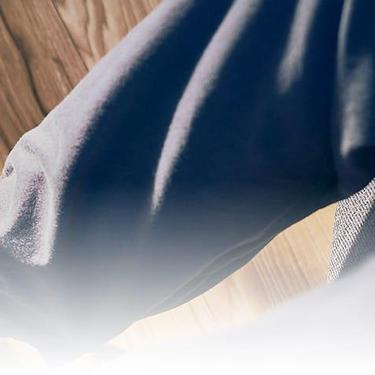
Discover which cat toys games your feline friend might like, and how they are great sources of exercise. Explore our library of articles to learn more.

Put your cat on a diet without them knowing
Our low calorie formula helps you control your cat's weight. It's packed with high-quality protein for building lean muscles, and made with purposeful ingredients for a flavorful, nutritious meal. Clinically proven antioxidants, Vitamin C+E, help promote a healthy immune system.
Put your cat on a diet without them knowing
Our low calorie formula helps you control your cat's weight. It's packed with high-quality protein for building lean muscles, and made with purposeful ingredients for a flavorful, nutritious meal. Clinically proven antioxidants, Vitamin C+E, help promote a healthy immune system.

